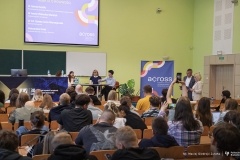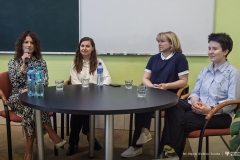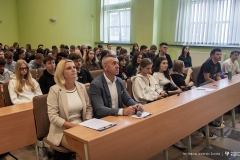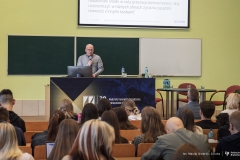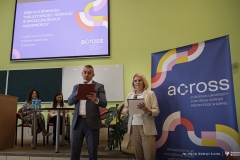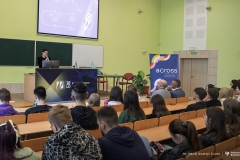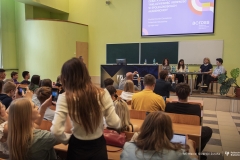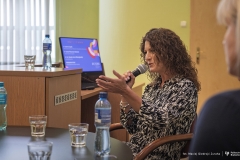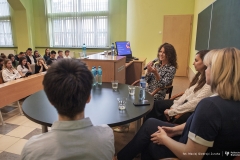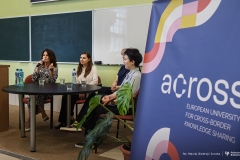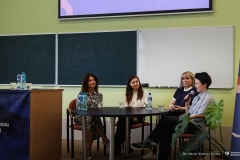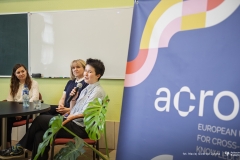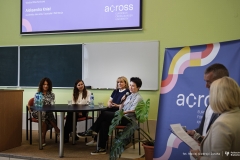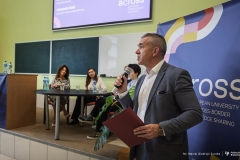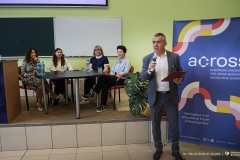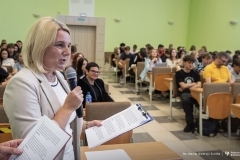Inclusion and Equality at Bialystok University of Technology
29-05-2025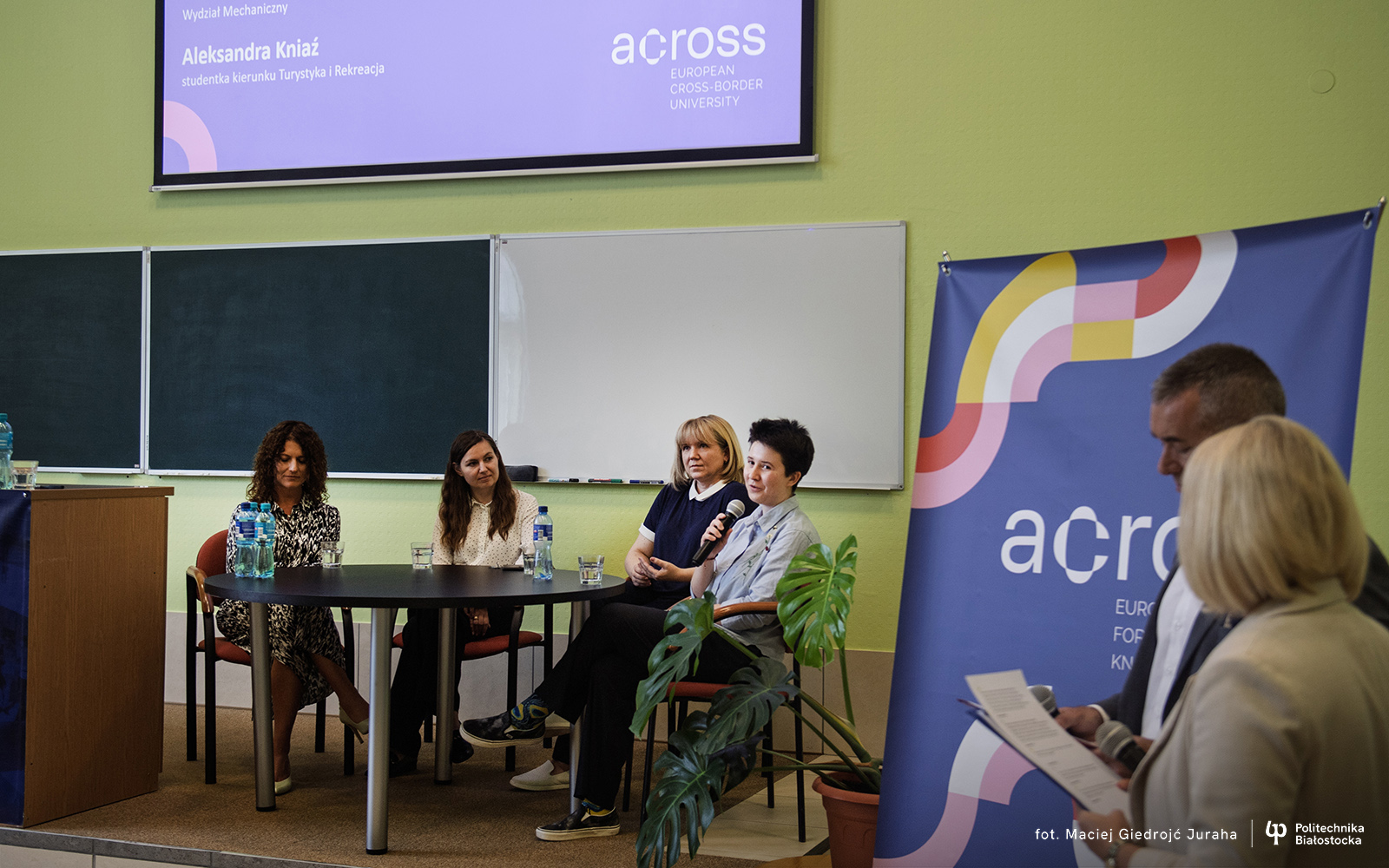
Participants shared their views on the accessibility and inclusiveness of the educational offer and infrastructure (with particular emphasis on the needs of people with disabilities), as well as on care for the mental health of the academic community at Bialystok University of Technology.
– Inclusion and equality in academic communities are, above all, about creating a space where every member of the university community – regardless of origin, skills, or ability – can feel safe and freely develop their potential, – said Assoc. Prof. Joanna Mystkowska, DSc, PhD, Eng, co-organiser of the debate. – That is why we see inclusion as a cornerstone of our local and international academic community.
Aleksandra Kniaź, a student at the Faculty of Engineering Management of Bialystok University of Technology, comes from Poznań but made the decision to relocate.
– I moved to Bialystok and enrolled at the University because I needed to take care of my health and take a break from the fast pace of life I had in Poznań,– said Kniaź. – I found a way to keep growing, knowing that the university would be a safe space for me.
She has had a hearing impairment since birth.
– I’m surrounded by kind people I can rely on, – Kniaź continued. – The Faculty of Engineering Management has its own atmosphere that encourages extracurricular activities. Students have the space not only to study but also to develop various skills, for example through student research clubs. Openness and understanding among the academic staff also matter. I know I can approach someone with a need, and together – with the help of the Office for People with Disabilities – we would find a solution.
In Bialystok, Ola combines her studies with her passion for table tennis.
– Sport is a part of my life I could never give up, – she said. This winter, she won the championship title at the AZS Polish Integration Championships in table tennis.
– The AZS BUT club is a place where athletes are supported, – she continued. – I can count on financial support for trips. At the faculty, I don’t face difficulties related to longer trips for sports competitions.
Inclusion and equal treatment are the foundations of building an academic community.
– At Bialystok University of Technology, every person should be assessed and treated fairly, regardless of their individual characteristics, without prejudice or discrimination, – reminded Joanna Szydło, PhD, Rector’s Plenipotentiary for Equal Treatment and Anti-Discrimination at BUT. – This means providing equal access to resources, opportunities, and support – for both students and staff of the University.
Inclusion and equality are among the goals pursued by the European University Across, co-created by Bialystok University of Technology.
– The meetings currently taking place at universities aim to broaden awareness within the academic community, but also to hold debates and hear new ideas in this area, – explained Assoc. Prof. Dorota Anna Krawczyk, DSc, PhD, Eng, Coordinator of the European University ACROSS at Bialystok University of Technology. – We are comparing university regulations, discussing what we offer our communities, how we approach these issues, and how much our students, doctoral candidates and staff know about potential problems that may arise from insufficient inclusivity.
Inclusion means actively striving to make the university a friendly and accessible place for all.
– The main goal of these meetings is the exchange of experiences and information among different members of the academic community – both students and staff – in connection with the special needs each of these groups may have when studying or working, – summarised Prof. Joanna Mystkowska. – This is not just about disability, but also about work organisation, such as balancing professional work and private life, coping with new situations we have never encountered before, or engaging with people who may be a bit different from us and have their own unique needs.
The European University Across brings together 10 European universities: 9 full partners from Banja Luka, Bialystok, Chemnitz, Craiova, Girona, Nova Gorica, Perpignan, Udine and Ruse, as well as one associated partner from Lviv.
by jd
